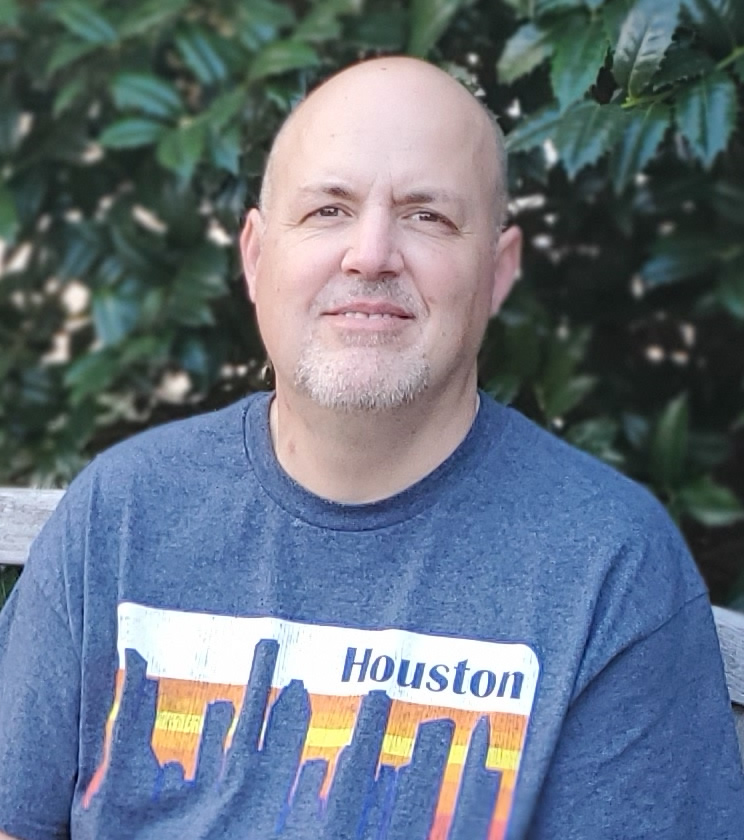DALLAS — Sean Astolfo had just wrapped up a virtual meeting when he suddenly grabbed his chest in pain and felt the pain radiate up to his jaw. Working in healthcare, Astolfo recognized the signs of a heart attack, but he didn’t expect to experience them personally, at the age of 48. The average age for a man’s first heart attack in the U.S. is closer to 65.

Sean Astolfo
Astolfo had no idea how serious it was, as that moment would lead to a 14-day stay at Texas Health Presbyterian Hospital Dallas, two procedures, stents to open his arteries and extensive treatment, including extracorporeal membrane oxygenation (ECMO). It is a simplified version of a heart and lung machine that pumps blood through an artificial lung back into the bloodstream of the patient. The process takes place outside of the body.
Before arriving at Texas Health Dallas, Astolfo called his wife, Kristen, to let her know what was happening. Unlike her husband, Kristen remembers each detail as if it were yesterday.
“Instead of getting better, I knew it was getting worse.”
Complete blockage in Astolfo’s left artery had caused his massive heart attack. Astolfo also had severe damage to his heart muscle. Physicians on the Texas Health Dallas medical staff determined ECMO was the best course of action for Astolfo. The labor-intensive program requires multiple staff to be present at the bedside, 24 hours a day. ECMO is one of several acute-care programs available at a Comprehensive Heart Attack Center, and Texas Health Dallas was the first facility in Texas certified by The Joint Commission.
The certification also translates into the ability to care for the most critically ill cardiac patients in North Texas, said Andres Leal, M.D., a cardiothoracic surgeon on the medical staff at Texas Health Dallas and a member of Texas Health Heart & Lung Surgical Specialists, a Texas Health Physicians Group practice*. The hospital has a specialized and dedicated care team that includes cardiovascular ICU nurses and respiratory and physical therapists, along with physicians on the medical staff specializing in cardiothoracic surgery, pulmonology, critical care and heart failure.
“It’s imperative for patients to receive care at certified institutions, which includes Texas Health Dallas,” Leal said. “The necessary resources are in place, to help individuals leave feeling better than when they arrived.”
He added that the ECMO program at Texas Health Dallas helps treat the sickest patients in the community. “ECMO allows the patient’s body to rest and recover while the care team can address the underlying cardiac concern.”
Patients, like Astolfo, also face another danger — cardiogenic shock, said James Park, M.D., an interventional cardiologist on the Texas Health Dallas medical staff and a member of Texas Health Heart & Vascular Specialists, a Texas Health Physicians Group practice*.
“Cardiogenic shock occurs when the heart suddenly fails to pump enough blood to vital organs,” added Park, who also serves as the Ewton Chair of Cardiology and director of the Structural Heart Program at Texas Health Dallas “It’s most commonly caused by damage to cardiac muscle during a heart attack.”
Identifying and treating cardiogenic shock is crucial.
“I remember Dr. Park showed me images of Sean’s heart, and it was unreal,” Kristen Astolfo said. “Where damaged heart muscle used to be, you could clearly see the arteries and normal blood flow through the heart. It’s amazing what modern technology can do.”
Recovering from heart attack, thankful and thriving
Ultimately, Astolfo walked out of the hospital on his own. The recovery process for the father of five continues with cardiac rehabilitation at Texas Health Presbyterian Hospital Plano.
“Despite the harrowing ordeal, it has been a good experience during a terrible time,” Kristen Astolfo said.
Astolfo reflects on a Bible verse to describe his patient journey.
“I can do all things through Christ who strengthens me,” he said. “I’m blessed, and the reason I’m still here is because of God and an amazing care team.”
Learn more about how Texas Health is advancing heart and vascular care throughout North Texas.
*Physicians employed by Texas Health Physicians Group practice independently and are not employees or agents of Texas Health Resources hospitals.
Related News
About Texas Health Resources
Texas Health Resources is a faith-based, nonprofit health system that cares for more patients in North Texas than any other provider. With a service area that consists of 16 counties and more than 7 million people, the system is committed to providing quality, coordinated care through its Texas Health Physicians Group and 29 hospital locations under the banners of Texas Health Presbyterian, Texas Health Arlington Memorial, Texas Health Harris Methodist and Texas Health Huguley. Texas Health access points and services, ranging from acute-care hospitals and trauma centers to outpatient facilities and home health and preventive services, provide the full continuum of care for all stages of life. The system has more than 4,100 licensed hospital beds, 6,400 physicians with active staff privileges and more than 26,000 employees. For more information about Texas Health, call 1-877-THR-WELL, or visit www.TexasHealth.org.
